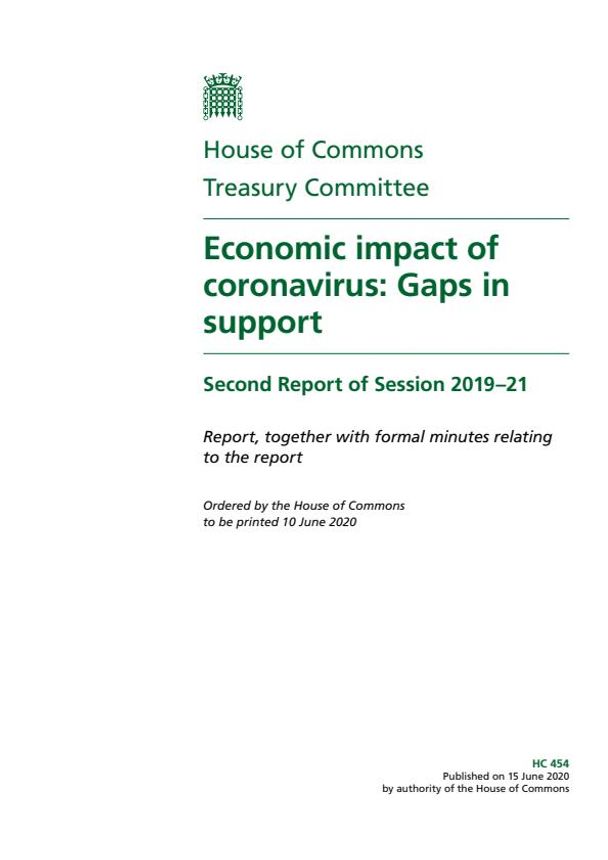We are now all familiar with the income support schemes launched by the UK Government in March, which aim to help businesses to keep their staff in employment (Coronavirus Job Retention Scheme or CJRS) and to support the self-employed (Self-Employed Income Support Scheme or SEISS). Figures published by HMRC show that as at 14 June 2020 1.1m employers had made claims under the CJRS for furloughing 9.1m employees, at the impressive cost of £28.8bn. For SEISS as at the same date 2.6m claims had been made for £7.6bn.
The Exchequer's response to the hardships caused to businesses and households by the pandemic is welcome. However, as the House of Commons Treasury Committee (a cross-party group of MPs) highlights in its report published on 16 June, they are not without flaws and run the risk of leaving industries such as entertainment and hospitality, already among the most harshly and disproportionately hit by coronavirus, high and dry. The fear is that, without further intervention the gaps in the schemes will grow wider as we move on to an extended period of support.
The Committee received significant evidence highlighting that new starters (i.e. people who started or were due to start work after the Government's designated cut-off date, originally 28 February and then 19 March 2020) were deemed ineligible for support under the CJRS. According to UK Hospitality, the UK's principal trade representative of the hospitality sector, between 350,000 and 500,000 people in hospitality alone were potentially missing out because they had not been on payroll as at 19 March 2020.
In addition, in industries such as media and entertainment where short-term contracts and freelancing are the norm, entitlement to support under the CJRS and the SEISS has not been available for many. BECTU, a union representing contract and freelance workers in the media and entertainment industries, estimated that only 2% of freelancers working in film and TV had been furloughed by their employer. The sector's unions and trade representatives alike encouraged the Government to adjust the methods of calculation of the income earned and of the entitlement to support. Without this, approximately 780,000 people were left out.
The report also recognised that the self-employed with an individual's annual trading profit in excess of £50,000, limited company directors (particularly of PSC, personal service companies) and newly self-employed would not qualify for either scheme. The result has been 1.5m people missing out on support.
The campaigns launched by members of the hospitality and entertainment sectors to review and amend the schemes have so far been ignored, despite the backing of many MPs.
Now, the Treasury Committee recommendations echo the words of these bodies, urging the Government to extend the cut-off date to 31 March 2020 to include new starters and to create new forms of financial support for freelancers. Finally, the Committee urged the Treasury to amend the CJRS to allow tronc payments made via PAYE to be included when calculating a worker’s pay: this simple change could provide additional support to those most affected.
Members of the industries affected and experts will be looking closely and anxiously to this week's announced review of lockdown measures, which could be paired with coordinated amendments to the scheme.
Although so far there has been no indication that the Chancellor will follow these recommendations, the Treasury Committee pointed out that the Government has shown before that calls for reforms do not fall on deaf ears.


/Passle/MediaLibrary/Images/2025-10-24-10-07-54-076-68fb4ffae660a4c38e3ce1e7.jpg)
/Passle/5c3c9d7eabdfe80c3892f86c/SearchServiceImages/2026-02-09-14-33-53-696-6989f0519d3b046f1fb1b969.jpg)
/Passle/5c3c9d7eabdfe80c3892f86c/SearchServiceImages/2026-01-28-19-35-54-905-697a651a0371dbadd57e0eea.jpg)